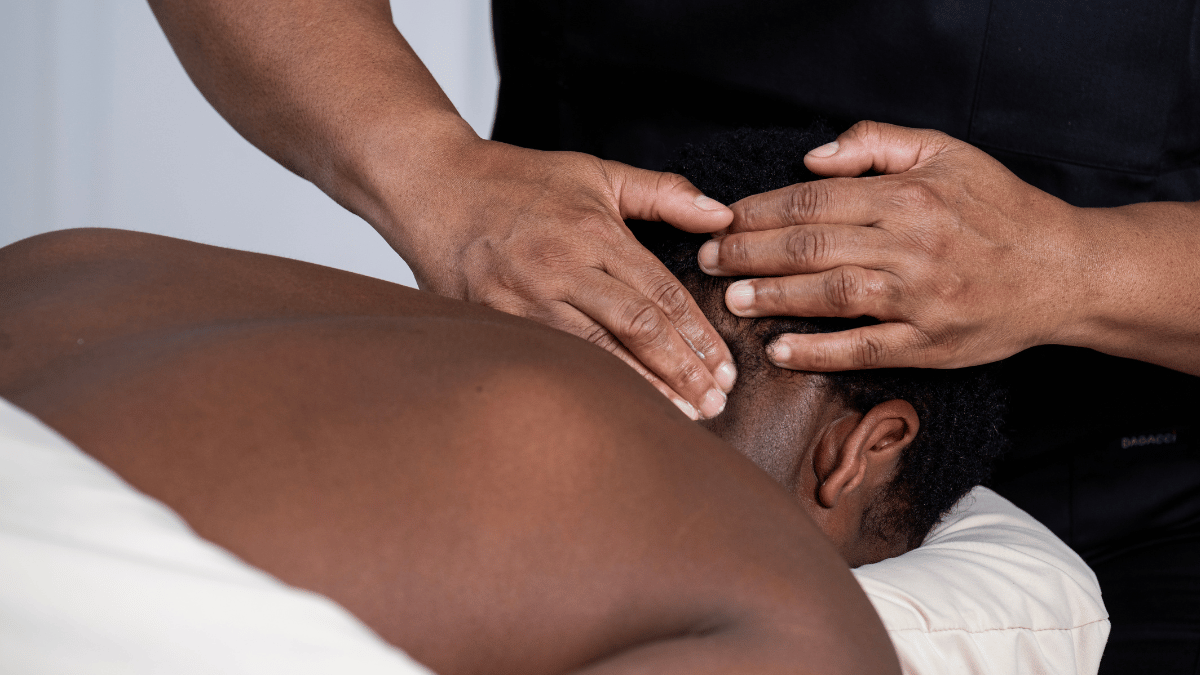Industry Experts Weigh in on CBD and Massage Therapy
Three industry experts share their insights on the potential benefits of using CBD in massage therapy —and what massage therapists should consider before incorporating it into their practice.

Who We Talked To
- Julie Bevel, Founder of Fox River MedSpa and Spa Pro CBD
- Susan Armitage, Founder and Owner of Susan’s CBD
- Dorinda O’Donnell, Owner, Muscle and Flow Massage
What is CBD?
To begin, CBD, or cannabidiol, is a naturally occurring compound found in the cannabis plant. It is a non-psychoactive component, meaning it does not produce the “high” associated with THC (tetrahydrocannabinol), another compound found in cannabis. CBD is widely recognized for its potential therapeutic benefits, including pain relief, reduced inflammation, increased relaxation, improved skin health and enhanced recovery from injury or intense activity.
How Can CBD Be Used in Massage Therapy?
CBD can be used topically in massage therapy. Julie Bevel explains that CBD can be applied in conjunction with “massage oil or as a highly concentrated spot treatment for an area with pain” and that “there are different concentrations available."
Susan Armitage offers more insight into the various concentrations. “A licensed massage therapist should look for products that contain between 150 mg to 1,100 mg of CBD per ounce,” she says. “The average massage takes about an ounce of oil (give or take). Anything under 100 milligrams per ounce may have low efficacy. It can be very effective to do a full body massage with a product that contains 150 to 600 mg per ounce of CBD and then follow up with a spot treatment on sore areas with a higher concentration CBD product as extra pain relief.”
CBD-infused topicals are versatile and can be integrated into various massage modalities. According to Armitage, “topical CBD works well with most massage techniques like hot stone, lymphatic drainage, myofascial release and cupping, as well as regular and deep tissue massage.”
The Benefits of CBD
All three experts agree that pain relief is one of the most significant benefits of using CBD in massage therapy. “CBD is excellent for reducing inflammation and pain,” says O’Donnell. “It helps tight, spastic muscles relax, which allows clients to unwind faster.”
Other potential benefits include reduced inflammation, increased relaxation, better sleep, and a feeling of calmness and relaxation. “CBD’s benefits are very similar to the benefits of massage alone and can potentially increase client outcomes by working in synergy with the body’s natural response to massage therapy,” Bevel explains. O’Donnell describes this synergy as “enhancement,” where CBD allows for faster pain relief that may enable massage therapists to work deeper.
Interestingly, massage therapists may also experience benefits when working with CBD. Armitage notes, “Many massage therapists find using CBD during a massage makes their hands feel less tired and experience their own relief from using the products on their clients.” Thus, CBD can be beneficial for both the client and the therapist.
Are There Any Contraindications?
All of our experts agree that the contraindications around CBD are the same as those that exist for massage in general. Armitage confirms this by noting that CBD has been found to be topically safe and that “contraindications with CBD massage are pretty much the same as most massage contraindications.”
For example, using CBD with clients with cancer or who are undergoing chemotherapy is not advised. Continually, CBD is not recommended for pregnancy and prenatal massage, as well as with clients who are nursing and anyone who has a seizure disorder. “Avoid any areas of the skin with wounds or rashes, as you would with any massage,” Bevel adds.
When in doubt, all of our experts encouraged massage therapists to require their clients to obtain their doctor’s consent before receiving massage with CBD.
Should Massage Therapists Limit Their Exposure to CBD?
Bevel says simply: “This is a personal choice. If a therapist is at all concerned, or simply doesn’t want that much CBD in their practice, they can limit their bookings and/or upgrades for this service,” she explains. “Most therapists have great body awareness and can find their own balance with CBD.”
Of course, if massage therapists have a skin reaction of their own to something in the product, they should discontinue use, O’Donnell explains. “I know the CBD products that are heavily mentholated can cause numbness in the hands after multiple uses,” she adds. “But, that’s because of the menthol, not the CBD.”
We Want to Hear from You
Using CBD in your massage therapy practice is a personal preference and a professional choice. We would love to hear from our massage community, do you use CBD in your practice? We encourage you to share your experience with us at communications@amtamassage.org!